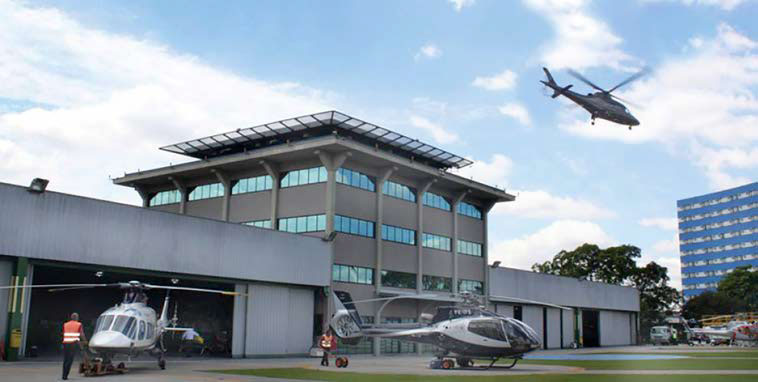With the anticipated widespread implementation of “flying taxis” — electric vertical take-off and landing (eVTOL) vehicles — just around the corner, a Salt Lake City company has developed and is marketing the world’s first vertiport automation system (VAS). Altaport Inc.’s system is designed to facilitate the future of travel by automating ground infrastructure operations for the new aircraft. {mprestriction ids="1,3"}
Altaport’s platform is already in use at numerous major heliports throughout Brazil — including at high-volume helipads and major air taxi operators in São Paulo — playing an important role in the development of the coming advanced air mobility (AAM) landing network.
“We are thrilled to see existing ground infrastructure managers use our platform,” said Altaport co-founder Robert Carroll. “Adopting Altaport’s technology early will enable landing locations to effectively prepare for the transition to electric and hybrid-electric aviation.”
The Altaport platform controls a range of activities to facilitate operations of ground infrastructure managers, including resource management and scheduling, ground movement safety monitoring, passenger management and fee collection. With Altaport, infrastructure managers can drive efficiency, revenue optimization and safety at their landing facilities, all while reducing staff workload, Carroll said.
Altaport is backed by the Philo Ventures startup studio and was co-founded by former Airbus and Google employees who saw the need to prepare today’s ground infrastructure for the future of high-volume eVTOL and cargo drone traffic.
“The industry is severely unprepared for the demand to come,” said Cory Cozzens, Altaport co-founder and Philo Ventures founding partner. “We’re only a couple years away from the introduction of eVTOLs, but most landing infrastructure managers are still using archaic toolsets to manage their operations.”
With eVTOLs expected to begin initial commercial flights by 2024, forecasts by NASA, McKinley, Morgan Stanley and others predict that the AAM market will grow into a $9 trillion market by 2050. Forecasters said that an individual vertiport could serve over 100 autonomous flights per hour, in coordination with a network of as many as 300 vertiports within a single metropolitan area.
NASA’s “Vertiport Automation Software Architecture and Requirements” report, released in July 2021, highlights the necessity of a robust, interoperable vertiport operating and communications system to manage the magnitude of interactions to come between vertiports and operators. Altaport officials feel that their system fills these needs and that it both reflects and builds upon the system outlined in NASA’s whitepaper.
“We’ve spent more than a decade building and launching operations that are highly reflective of what future AAM operations will look like, giving us unique insight into the challenges and opportunities that such operations present,” said Cozzens. “The Altaport team has combined the learnings from those experiences with the technical standards established by the industry to date to build the leading vertiport automation platform. When the first eVTOLs begin commercial operations, Altaport will be prepared to serve landing locations around the world.”
While helping heliports in Bazil streamline their operations today, those operations also give the Altaport team an opportunity to gather invaluable real-time feedback within an environment that is highly analogous to the future AAM operations network, company officials said.
“Altaport’s VAS platform will play a critical role in establishing and growing a safe and efficient eVTOL ecosystem,” said Grant Fisk, co-founder of Volatus Infrastructure, a AAM infrastructure company based in Wisconsin. “We believe their VAS is a key piece in the Volatus vertiport package, which is why we partnered with Altaport early on. We particularly appreciate how their work with heliports today is going to directly translate to and benefit the eVTOL world.”{/mprestriction}








